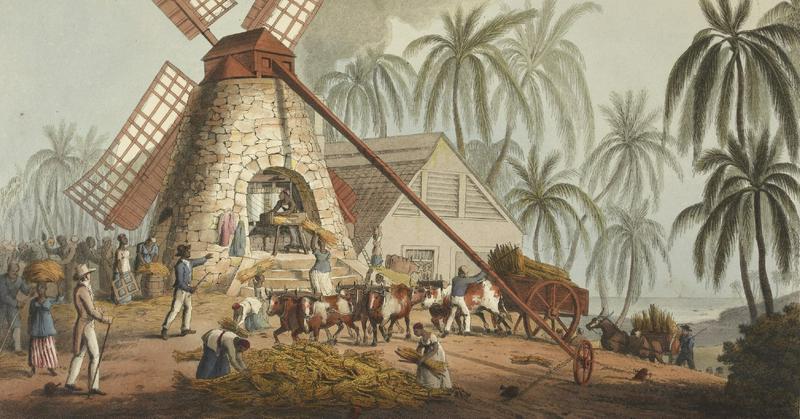The Slave Trade Act: British Parliament Finally Abolishes Slavery In 1807
By | April 13, 2021

The long battle to stop the transatlantic slave trade came to a head on March 25, 1807 with an act of parliament to abolish British slave trade. The journey to the Slave Trade Act of 1807 was fraught with tensions on every side of the argument, but when it finally became policy, it changed the face of England forever.
Bitter Sugar
Sugar was the single largest driving force behind the British slave trade. As a part of the Trade Triangle, slavers transported their victims to New World plantations where they cultivated and grew sugar cane, a crop that comprised one-third of the country's economy. That meant a lot of British businesses, such as the Bank of London and Lloyd's Insurance, lobbied adamantly to keep the Triangle up and running even though arguments against the slave trade were brought to the House of Lords as early as the 1600s. When Britain went to war with the North American colonies, who held their precious sugar cane plantations and where a growing movement to end the slave trade was percolating, it started to look as if the decision might be out of their hands.

The Somerset Ruling
It wasn't until 1772, however, that any real action was taken. That year, Lord Mansfield ruled in favor of James Somerset, a man sold into slavery and purchased by Charles Stewart in America. Somerset had escaped from Stewart only to be incarcerated for his days on the run, and after a trial that ignited one of the earliest fights between abolitionists and ardent supporters of slavery, Mansfield ruled that slavery wasn't supported by English law.
Although he intended his decision to apply exclusively to Somerset's case, Mansfield's ruling was the beginning of the end of the slave trade on both sides of the Atlantic. It threw the humanitarian crisis of slavery under a spotlight, and just over a decade later, Parliament member and philanthropist William Wilberforce joined forces with Hannah More and Granville Sharp to create the Anti-Slavery Society. Inspired by his colleagues, Wilberforce spoke at length in the House of Commons about the horrors of the slave trade, the grim conditions on the ships, and Biblical renunciations of slavery.

The Slave Trade Act
As support for abolishing the slave trade continued to build into the 19th century, Attorney-General Sir Arthur Leary Piggott backed the Foreign Slave Trade Abolition Bill of 1806. The bill passed on May 23, 1806, prohibiting the import of slaves from from foreign territories, including Americas and the Netherlands.
Less than a year later, Lord Grenville brought the Slave Trade Act to the House of Lords, where it received significant pushback from the Duke of Clarence and those with economic interests in the West Indies. They argued that it was one thing to stop buying slaves from foreign powers, but they feared the entire British economy would go under without slave labor. Nevertheless, following a 10-hour debate in February 1807, the Slave Trade Act was passed by a margin of 283 votes to 16.
Even with this monumental success, however, the fight for abolition wasn't over. Slavery was still running rampant in the British Caribbean, leading to the Slavery Abolition Law of 1833, which freed nearly 800,000 enslaved people throughout the Caribbean, South Africa, and Canada. There were still those American colonies, but well, you know how that worked out.

